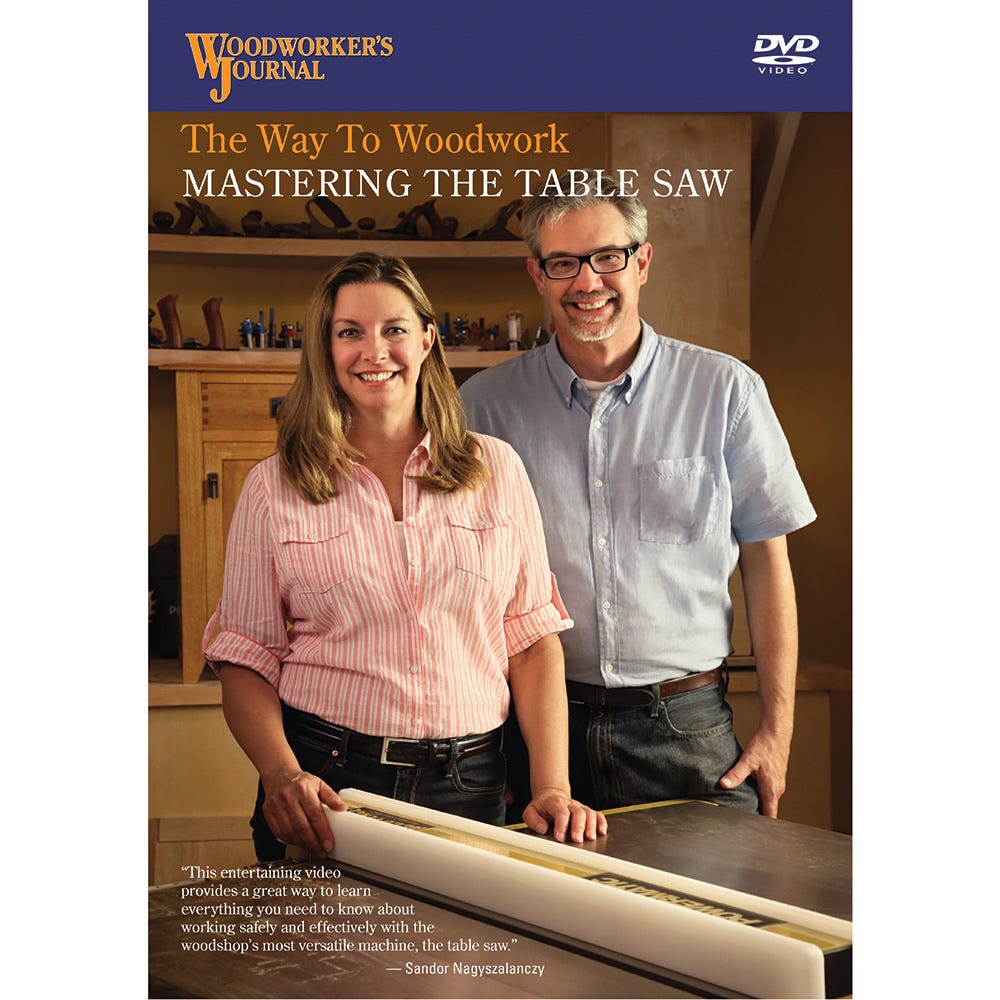
Cottonwood
A question about appropriate uses for cottonwood prompted these responses. – Editor
“My old house, built by some German farmers 125 years ago, is framed almost totally from cottonwood. All the joists, studs, and rafters are cottonwood, as well as the sheathing boards, some of which are nearly three feet wide. Cut thick in full inch sizes by a local mill, it’s pretty sturdy, but hard to sink a nail into after a century or so. A major problem can be rot. If it’s close to the ground and gets wet and stays wet, it’s gone in no time, a veritable thanksgiving feast for insects. Warm and dry, it will last forever I think. Some remodeling provided me with a few leftover chunks of it which I’ve used for small projects, toys and the like. It sands smooth and finishes beautifully.” – B. H. Rucker
“I have been building a house for the past 11 years or so. In the master bedroom we have a vaulted ceiling that is cottonwood. It is so pretty that we went back and made the walls from cottonwood, too, and finished it with linseed oil. When the sun hits it in the morning, the whole room looks golden. It was easy to work with and finished out very nicely.” – Karen Barkley
“I have a Scout troop, and we use Cottonwood to make fire by friction sets. It’s easy for the boys to work with, and the boys seem to get a spark faster with it.” – Dick Coffin
Duck Duct Goose
“In the article on Gorilla Glue, the correct term is ‘duct’ tape not ‘duck’ tape.” – Richard Simandl
Actually, Richard, both terms are used, but the best etymological evidence suggests that duck came first. Below is an excerpt from an article by linguistic expert William Safire, who dealt with the duck vs. duct issue in the March 2, 2003 edition of The New York Times. – Editor
“The original name of the cloth-backed, waterproof adhesive product was duck tape, developed for the United States Army by the Permacel division of Johnson and Johnson to keep moisture out of ammunition cases … In 1945, a government surplus property ad in The Times offered 44,108 yards of ‘cotton duck tape.’ The first citation I can find for the alternative spelling is in 1970, when the Larry Plotnik Company of Chelsea, Mass., went bust and had to unload 14,000 rolls of what it advertised as duct tape.”
-William Safire, New York Times, March 2, 2003
The military version of the tape was Army green, but was changed to silver when post-war HVAC people started using it to patch duct seams. No one knows for sure why it was originally named duck tape, but the two strongest theories are that it was made from a type of cloth called cotton duck, and because the polyethylene backing beaded and shed water like a duck’s back. Incidentally, when we interviewed Gorilla, we asked if they had a preference for either duck or duct for purposes of the article. They said they did not care and saw both as perfectly acceptable. Considering the fact that most of us use it for jobs other than duct work, we decided to go with duck. – Editor
Gorilla Gourmet
While we are on the subject of Gorilla Glue, check out this interesting fan letter. – Editor
“I use Gorilla Glue and love it. So does my border collie pup, who knocked over a bottle, chewed the top off and got a cantaloupe-size glob in his stomach. The vet surgeon said this was the fifth dog he had opened to remove the glue in the last six weeks.” – Sam Harris
Fast Times at Woodworker High
Rob asked how the economic vagaries are affecting your woodworking, if at all. Many of you responded. Here are just a few comments. – Editor
“I’m finding ways to reuse materials from old furniture and scraps of wood around the shop. I’m also becoming better at estimating the amount of materials I need for a project. The tight economy has caused me to think more about my consumption, but it hasn’t slowed my shop time any. It continues to be my salvation from the crazy, workaday world.” – Carlos J. Dominguez
“I’ve reduced the number of projects and build smaller, more individual items that are unique and will become either sentimental or personal in nature to the owner.” – Chuck Ballinger
“These economic times bother me for all the harm they do to a lot of Americans. However, I am fortunate enough to be able to continue my woodworking unabatedly.” – Robert Clough
“Instead of deciding on a project and then purchasing the materials for it, I look over my existing wood supply and all the cutoffs to determine what I can make with the supplies I already have or what I can make with a minimal amount of new purchases. Therefore, the amount of time I spend in my shop hasn’t changed all that much, but the projects I make sure have.” – Martin Green
“In difficult economic times, I tend to limit my purchases of raw materials and use my stockpiles of existing board feet to do my projects.” – George Worthington
“My boyfriend helped me rework a tired deck into stairs and a landing. We did not buy any wood for this project. He took up the deck boards and flipped them over and the wood looks new. I’m going to use the leftover wood to trim out the landing and stairs and make planters.” – S. Elena Demeris
“During these times, I probably spend more time in the shop tinkering around than normal. I look for bargains and just keep the projects coming.” – Tom Klopfenstein
“I still do some projects but not as many and not as complex as I used to do. My main woodworking tools are at a community education center which is located about 20 miles from my home. At current gas prices, I can’t go often enough to get any continuity to my work.” – Neil W. Gillis.
“Since I own my own mortgage brokerage, the tough economy means I have more time on my hands to spend in my shop, but less money to spend on materials for projects. I’ve always used a lot of reclaimed wood in my projects. I’m continually amazed by the amount of good wood I can save from the dump, by picking up old furniture, shelves, and tear-down lumber I find sitting along side the road. I’m spending more time in the shop and using my woodworking skills to accomplish some home improvement projects, but at the same time I’m also doing my best to keep the cost of my hobby as low as possible.” – Jack Pooley
“I am in the shop more then I ever anticipated, not building stuff that I would like, but what we need in the house, and at very great savings.” – Frank Bonthron
Not all savings are monetary. – Editor
“With so many things being imported from China, just buying the raw materials is more expensive than the off-the-shelf finished product. However, my little steps into woodworking have saved a great deal of my own mental health, and I think that is important in the long run. When I isolate myself in the garage, the task becomes my therapy. Instead of saving money by doing my own wood works, I’m saving my life. And if I make something nice for my home along the way, it’s a double gain.” – Jaime Hincapie
Let’s wrap the discussion up with his gent’s suggestion that we save an industry by buying new tools, an idea that really appeals to us. – Editor
“I believe that no one will feel this downturn worse than vendors who target the discretionary spending of consumers, and the hobby and leisure category is always the first to get hit during belt-tightening. If all of us tightwad woodworkers do this simultaneously, the industry may very well implode, and it is not like all of these companies will magically and immediately reappear following the storm. Which companies will get hurt the worst? The companies who sell big tools. Everyone can squeeze a couple more years out of the old table saw if they need to, and these product lines are operating on razor-thin margins as it is. The solution seems obvious. We all need to buy big tools so that we can keep things moving for these tool companies, who are there for us always in good times and bad. I feel that a minimum commitment of one big tool per year is in order. My shop is currently stocked up, and I don’t have any short- or near-term tool needs, but in spite of this I feel it is my duty as a good citizen of the woodworking community, and of America as a whole, to visit my local Rockler and adopt a tool.” – Paul Mayer
Paul, our hat is off to you for your fine example of selfless charity and deep concern toward the tool making industry. We are so overcome that we are even now wiping a tear from our eye. – Editor
Less of a Bargain?
“I read about the wireless data logger and thought that would be great for another application, but when I read the manual I found that you also need a WR100 receiver for $300 more. At least that’s the way I read it.” – Sheldon Kolansky
Typo Corner
Here’s where one man’s spelling glitch becomes another man’s entertainment. – Editor
“I was out in my barn mindlessly plaining boards.”
We assume plaining means he was removing the figure to make them less fancy. – Editor






